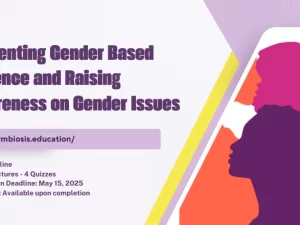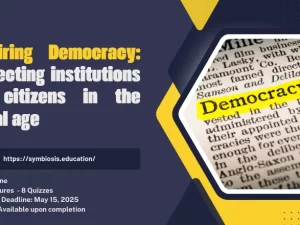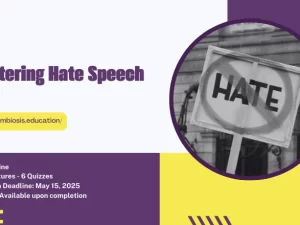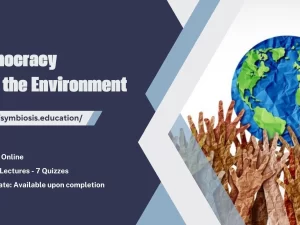Rethinking Humanitarianism; Whither refugee rights?
- Description
- Curriculum

The course on “Rethinking Humanitarianism” is organised around two wider discussions:
Rethinking Human Rights and Democracy
This subject area purported to explore and address the growing tensions between liberal and democratic elements within actual European politics. These tensions are directly related to current national policies enacted by European states, as well as to a widespread urge for institutional reshaping. Both tend to reshape the landscape of the protection of fundamental rights therein. Such developments have been noted especially in the fields of immigrants’ and refugees’ reception and integration, minorities’ protection and religious tolerance, women’s rights, yet also in more politically sensitive contexts, such as freedom of speech, freedom of (electronic) press, freedom of association, etc. Political theorists and scientists have been hotly debating the last fifteen years on the gradual emergence of new models of governance permeating or even taking over national institutions in the name of the people, national values or the common good and/or in view of a crisis situation. These new models, under the names of “illiberal democracy”, “liberal despotism”, etc., do not merely present themselves as deviations from the established western liberal democratic set up, but rather bear witness of the intensifying tension between liberalism and democratic ideology. The pandemic has simply accelerated procedures and accentuated theoretical and political debates. This makes exploring and debating the prospect of bridging and keeping liberalism and democracy closely connected an imperative for safeguarding fundamental rights in Europe. In this light it would also be of interest to take stock of where a seminal mark for the Council of Europe, the European Social Charter, the most wide-ranging instrument on social rights in Europe, stands. From the gender pay gap to the rights of migrants and unaccompanied children, from older persons’ rights to the right to strike, the Charter has proved a living instrument capable of engaging with a broad diversity of challenges faced by Europeans, and this year marks its 60th anniversary.
Whither refugee rights?
Drawing from Barbara Harrel-Bond’s seminal book Imposing Aid, this subject area introduced a critique of the humanitarian regime that fundamentally changed how humanitarian organisations work. As international aid reaches operational, financial, and ethical limits, we come to ask which is the relevance of humanitarian principles and responses today? Why are refugee rights being demoted? By whom? And in what ways? Who is responsible for teaching refugee rights? In short, where did refugee rights go wrong? Are the pinnacles of preventing conflict, mutual and activist aid, decolonising aid and shrinking the scope of the aid sector, enough? From ‘decolonising aid’ to ‘networked humanitarianism’, from the make-up of NGO governance boards to reform of the UN Security Council and the UN Agencies, which are the drivers of change affecting international aid? What do the increasingly protracted and mixed nature of crises, the funding environment and the opportunities offered by digital, imply for the aid industry? What does the aid industry mean for those it is supposed to serve?
-
1Crisis and Populism(s): Towards a Typology - Yannis Stavrakakis
This course explores the complex dynamics between populism and liberal democracy in times of socio-economic crisis. It examines how contemporary liberal democracies, initially structured to legitimize governance through limited popular sovereignty, struggle to maintain legitimacy amid rising inequality and social dislocation. These conditions often lead to a crisis of representation, creating space for new political forces claiming to act "in the name of the people." The course introduces a typology of populisms, distinguishing between inclusive, equality-oriented left-wing movements and exclusionary, nationalist right-wing variants. Through a critical analysis of discursive practices and ideological orientations, learners will investigate the polarized landscape of populism versus anti-populism and gain tools to discern the nuanced responses to democratic deficits in the modern era.
-
2Quiz
-
3Authoritarianism and totalitarianism through the Turkish case - Cengiz Aktar
This course offers a critical examination of authoritarian and totalitarian dynamics, using contemporary Turkey as a case study. Once hailed as a model for democratic reform and a bridge to Europe, Turkey has undergone a profound transformation marked by de-Westernization, domestic repression, and assertive foreign policy. The course explores the complex interplay between state, nation, religion, and historical myth, and how these forces have contributed to the country’s political shift. Participants will engage with analytical frameworks to better understand societal fragmentation, international responses to Turkey’s trajectory, and the broader implications for regional and global stability.
-
4Quiz
-
5The Deficits of European Institutions and their link to Political Extremism - Leonidas Makris
This course delves into the structural and ideological shortcomings of the European Union and their role in undermining democracy and human rights, potentially fueling political extremism. Through the identification of five key deficits—identity, political-ideological, institutional, methodological-epistemological, and philosophical—the course outlines how these gaps weaken social cohesion and distance EU governance from its citizens. Learners will explore reform proposals aimed at transforming these deficits into measurable targets, guiding both member states and EU institutions toward a more democratic, inclusive, and responsive Union. Emphasis is placed on reimagining the European project beyond the confines of nation-state politics, through new institutional frameworks capable of addressing transnational challenges.
-
6Quiz
-
7Rethinking Authoritarianism and Liberalism in space - Despina Syrri
This course explores authoritarianism beyond the traditional, state-centered framework, analyzing it instead as a practice enacted across multiple spaces and scales. It investigates how liberal and illiberal modes of governance intersect, particularly in contexts such as border control, detention systems, extractivism, and the global response to migration and security. By tracing how authoritarian practices are spatially distributed—often outsourced to borders, third countries, and conflict zones—the course highlights the blurred lines between liberal ideals and exclusionary realities. Key themes focus on the growing influence of far-right movements, the role of humanitarian actors, and the inherent contradictions within liberal frameworks. The course encourages a broader examination of how dominant political systems continue to perpetuate inequalities and limit the possibilities for transformative change.
-
8Quiz
-
9Forced Migration as a Learning Field - Eftihia Voutira
This course introduces the field of refugee studies, examining its origins in the 1970s and its evolution in response to the growing global challenges of forced migration. It explores the root causes of displacement and the importance of considering a generational perspective, acknowledging that the effects of forced migration extend beyond those directly affected to include past and future generations. The course will address the current state of refugee studies, including the shift in how migration and resettlement are understood, and the challenges posed by both the vast amount of data available today and the need for evidence-based, participatory research. In addition, the course highlights the often-overlooked issue of burnout among humanitarian workers, posing the critical question of “Who helps the helpers?” and the importance of psychosocial support in aid efforts.
-
10Quiz
-
11Withering the rights: protection, securitization and criminalisation - Katarzyna Grabska
This course explores the complexities of humanitarian aid, focusing on the limitations of needs-based approaches and the importance of rights-based frameworks. It examines power imbalances between humanitarians and refugees, and how aid often reflects exclusion rather than inclusion. Key topics include the criminalization of humanitarian efforts, the tension between universal rights and political realities, and the ongoing challenges in protecting refugee rights.
-
12Quiz




